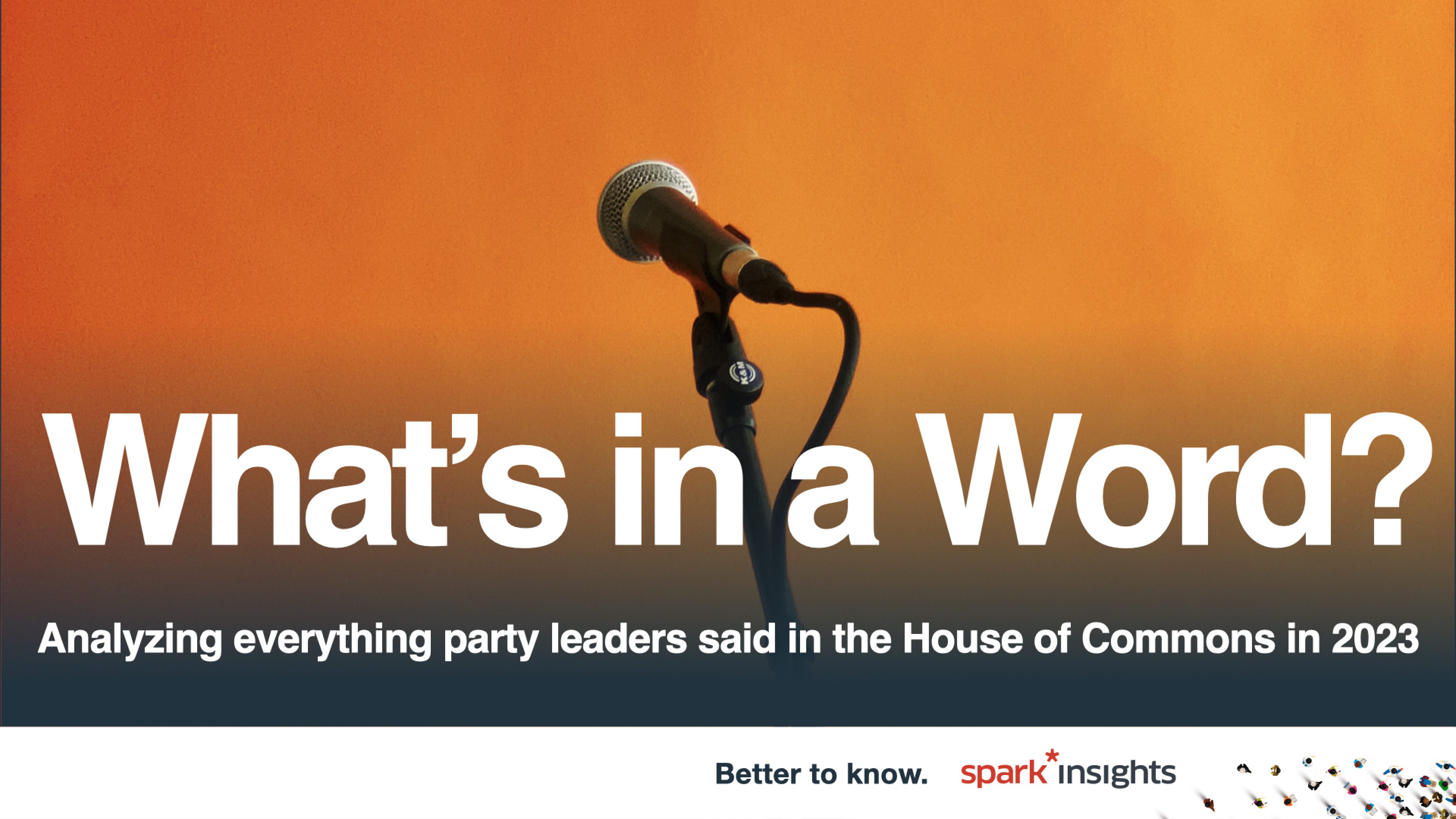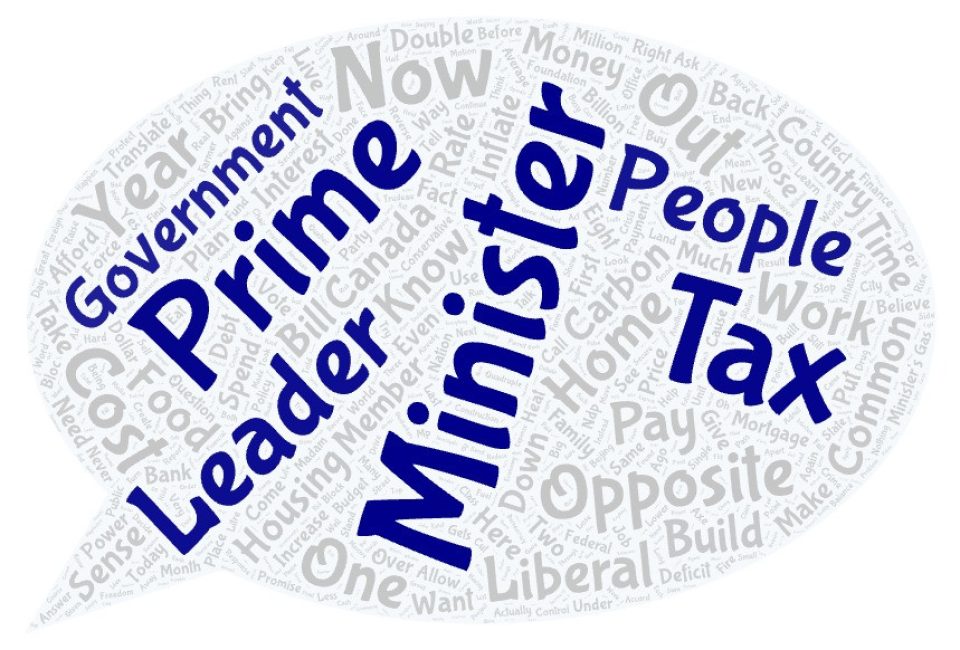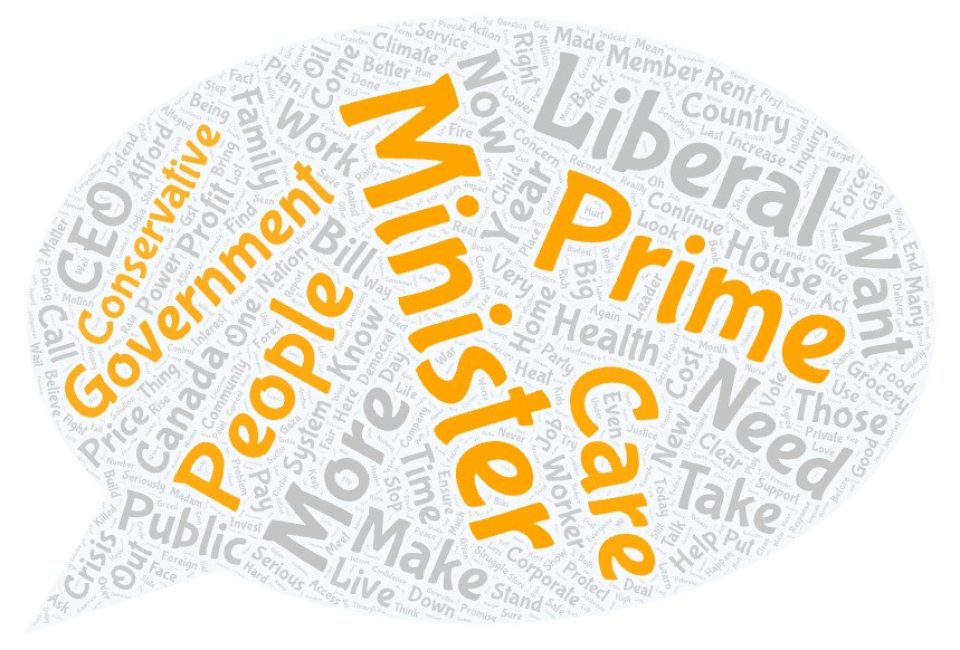Subscribe for more!
Subscribe to our newsletter for insights and articles on wide ranging issues including reputation management, branding, advertising, awareness, advocacy, and communications. You can unsubscribe anytime.
Follow us on social:

In our first release in a series analyzing the messaging choices made by Canadian politicians, spark*insights is looking at what each party leader said most in the House of Commons in 2023.
Party leaders are notorious for remaining “on message” in the House of Commons, but what is the message they are trying to communicate the most? Examining Hansard for every word spoken in the House in 2023 reveals the messaging priorities of each leader.
After filtering out extremely common words (including the obligatory “Mr. Speaker” and omni-present references to “Canadians” made by politicians across the political spectrum), we find an interesting story.
For Justin Trudeau, who won in 2015 on a message of change, 2023 sounded different.
Trudeau’s most-spoken word in the House was “continue” with 801 mentions, a potential issue with recent evidence that a lot of voters are once again hoping for “change.” If Trudeau’s language remains oriented towards continuity, it will be hard for him to win voters who feel things aren’t going on the right track in Canada.

For his part Pierre Poilievre kept his focus on the “Prime Minister” (1581 times or an average of 1.5 times each time he rose to speak), “taxes” (1037 times including 427 mentions of carbon tax) and “housing” (combining homes [659] and housing [464]).

Jagmeet Singh rose 213 times in 2023, referencing the “Prime Minister” on most of those occasions (207 mentions total). Singh also spoke a lot about “care” (143) – including references to health, dental, pharmaceutical and child care – and he made a considerable number of references towards CEOs (82) and corporations (66).

Bruce Anderson, Partner and Chief Strategy Officer of spark*advocacy: “The big takeaway here is the effort by Poilievre to attack the Prime Minister personally and to constantly reference housing and taxes – and the corresponding evidence that his message is resonating in terms of higher public opinion support. For the Liberals a flashing orange signal that “continuing” is not a competitive message, even if it feels natural as incumbents to remind people of the work you’ve been doing and why it should influence voter choices in the future.“
Alex Kohut, Senior Director of spark*insights: “If none of the parties change their messaging priorities, we are headed for a change election. The Conservatives and NDP want to convince Canadians that Trudeau needs to go, while the Prime Minister’s language suggests he’s happy being cast as the representative of the status quo. I’ll be watching closely to see if the Liberal message shifts in 2024 to acknowledge the Canadians who feel Canada isn’t on the right track and show them that this Prime Minister is still willing to make major policy changes to improve their lives."
We will keep tracking these trends through 2024 to see if parties and leaders are changing their focus in the run-up to the next election. You can subscribe to our spark* newsletter here to hear more about our analysis and polling data as soon as we release it.
spark*insights is led by Bruce Anderson, one of Canada’s leading and most experienced public opinion researchers. From polling and research to analysis and guidance, we help organizations, uncover the factors driving or influencing public perception to gain valuable insights into the shape and movement of the landscape.